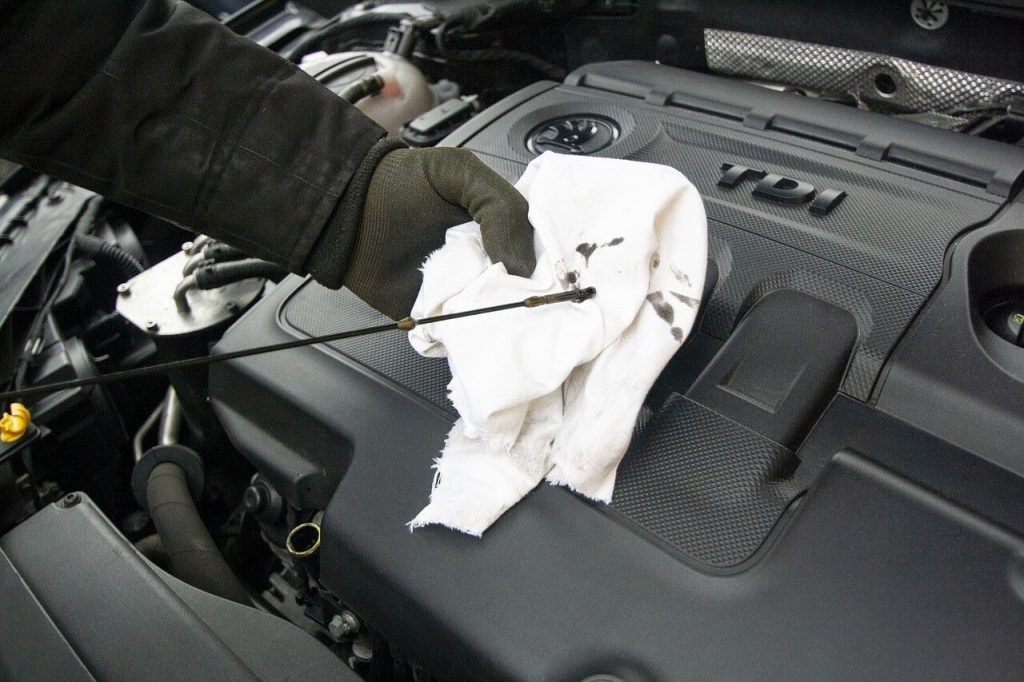Categories
When To Use A Mechanic – 5 Things You Must Know As A Car Owner
When to use a mechanic: what doctors are to patients are what mechanics should be to cars. And just as there are quacks even in this elite practice of medicine, mechanics have their fair share

What doctors are to patients are what mechanics should be to cars. And just as there are quacks even in this elite practice of medicine, mechanics have their fair share of ‘professional assassins’, where the target is your car and certainly, your wallet. It’s crucial that you know when to use a mechanic after carrying out your car diagnostics to a reasonable extent.
5 Things You Must Know As A Car Owner – When To Use A Mechanic
While mechanics are often good at what they do, the following you must know before asking your ‘Naija’ mechanic to help inspect and validate, your next automobile purchase:
Use Your Car Brand Mechanic For More Reliable Results
Most Nigerian mechanics are by practice, Jack of all trades, masters of none.
They claim to be able to work on all cars from Peugeot to Benz, from Volvo to Toyota and from Daewoo to Ferrari.
Unfortunately, this has its cons. As with medical practice, general physicians can give you a guide, but specialists in the matter of concern, come highly recommended.
Every car manufacturer, mostly across continents, differ in their technologies.
So German engines would typically differ from their American counterparts and Korean design layouts will stand out from their English competition.
Asking a very skilled mechanic, who routinely serves Asian brands, to go inspect and help buy a BMW on your behalf, might be equivalent to using your funds to lobby for marathon expenses in the name of a new car.
If and where you can find a specialist for the brand you intend to buy, s/he will always be the wisest choice over the common versions of ‘general merchandise’.

Do Not Judge A Car By It's Nice And Clean Exterior Look - Performance May Be The Very Opposite
From our years of experience, there are assumptions most mechanics make, which either due to haste or sheer pride, denies them the need to drill down into key details of the car.
E.g. I have seen mechanics who on seeing a car with fantastic exterior (especially so-called first body) and with a sound engine, conclude that the car is okay, without a test-drive to ascertain the condition of the gear and suspension.
This is an often-costly mistake and the debit alerts will be received by the new owner.
While experience can help you discern a lot, there’s a reason most professionals, especially foreign, use a checklist for something they have done, a zillion times.
Use Diagnostic Tools To Check For Diagnostic Trouble Codes (DTC)
With OBD diagnostic tools these days, any rabbit can check the diagnostic trouble codes (DTC) of a vehicle.
The issue however is, most mechanics who wield these tools know where to plug the cable but not how to interpret the generated codes in relation to symptoms presented by the vehicles.
Some error codes for instance, which have although been sorted out and have moved to the ‘history’ in the brainbox memory, will not be the same as those that are captured as ‘current’.
Mechanics who can tell these apart with knowledge and experience are as rare as an eclipse.
Have A Specialist Check That Car Proper And Test Drive Before You Make Payment
Some mechanics have mastered the art of insisting that if they have to pass a vehicle as ‘good-to-buy’, the seller has to give them something decent.
Cash of course! Now, whether the car is good or not, such a practice of corruption blindfolds them from potential major repairs and wallet drains.
The common cliché is “na where person dey work, e dey chop.”
The consequence is that they get paid by the buyer and seller for ‘showing up’ and still end up getting paid for fixing the issues they deliberately glossed over, all at the expense of the unsuspecting new owner.
Perform VIN Check To Check Details of Accident History Before Purchase
I have yet to meet with a mechanic who goes the extra mile of doing a VIN check on the vehicle in view, to ascertain a history that might encourage or deter the purchase.
And one might say, but he’s experienced and that should help unearth if there were impacts and the severity of damage.
Yet, this isn’t the only benefit of a VIN check. With a VIN check, he might find that the car was flooded and with this information understand why there’s the problem of electrical issues which the dishonest owner had earlier claimed was a very minor problem.
Conclusion
Right next to buying a house and the cost of wedding expenses in this part of the world, cars are significantly our most expensive purchases.
It makes infinite sense to do as much due diligence on these vehicles.
Employing the use of mechanics is great, yet, you must know what you are looking for, who to hire for such inspections and what additional checks you must do before pouring your sweat into a seller’s account.
For detailed inspections, diagnoses, VIN checks, Customs duty verification and cost analysis of repairs, contact CARvity.com via hello@carvity.com or simply chat us up via WhatsApp on 08095506677.
Frequently Asked Questions (FAQs) On When To Use A Mechanic
What are the essential things to know before contacting a mechanic for car repairs?
Before contacting a mechanic, car owners should know the specific issues they are experiencing with their vehicle, any unusual sounds or smells, and any recent changes in performance. Additionally, having basic knowledge of the car’s make, model, and year can help the mechanic assess the problem more accurately.
How can car owners ensure they are choosing a reliable and skilled mechanic?
To find a reliable mechanic, car owners should seek recommendations from friends, family, or online reviews. Look for mechanics who are certified by reputable organizations and have experience working on your car’s make and model. Asking for a detailed estimate and getting a second opinion can also help in making an informed decision.
What are the essential maintenance tasks every car owner should be aware of?
Car owners should be aware of routine maintenance tasks such as oil changes, tire rotations, brake inspections, and air filter replacements. Understanding the manufacturer’s recommended maintenance schedule and adhering to it can help prevent costly repairs and keep the car running smoothly.
What are some warning signs that indicate a car might need immediate attention?
Warning signs include strange noises, vibrations, dashboard warning lights, excessive smoke from the exhaust, and any noticeable changes in handling or braking. Ignoring these signs could lead to more severe damage and expensive repairs.
What should car buyers know before purchasing a car?
Car buyers should research the make and model they are interested in to understand common issues, reliability ratings, and typical resale values. They should also get a vehicle history report to check for past accidents or other potential red flags. A pre-purchase inspection by a trusted mechanic is crucial to identify any hidden problems before making the purchase.
How can car owners maintain their vehicles to prolong their lifespan?
Regular maintenance, such as timely oil changes, fluid top-ups, and keeping the car clean, can significantly extend a vehicle’s lifespan. Avoiding aggressive driving and adhering to recommended service intervals are also essential for ensuring the car’s longevity.
What are some essential documents and records car owners should keep track of?
Car owners should keep records of all maintenance and repairs, including dates, parts replaced, and costs. Having these records on hand not only helps with warranty claims but also assists in maintaining the vehicle’s resale value.

